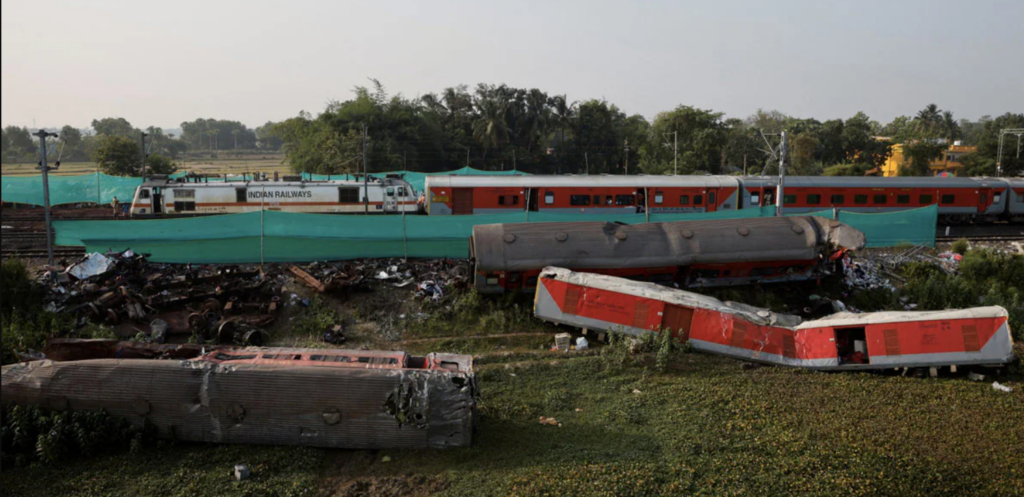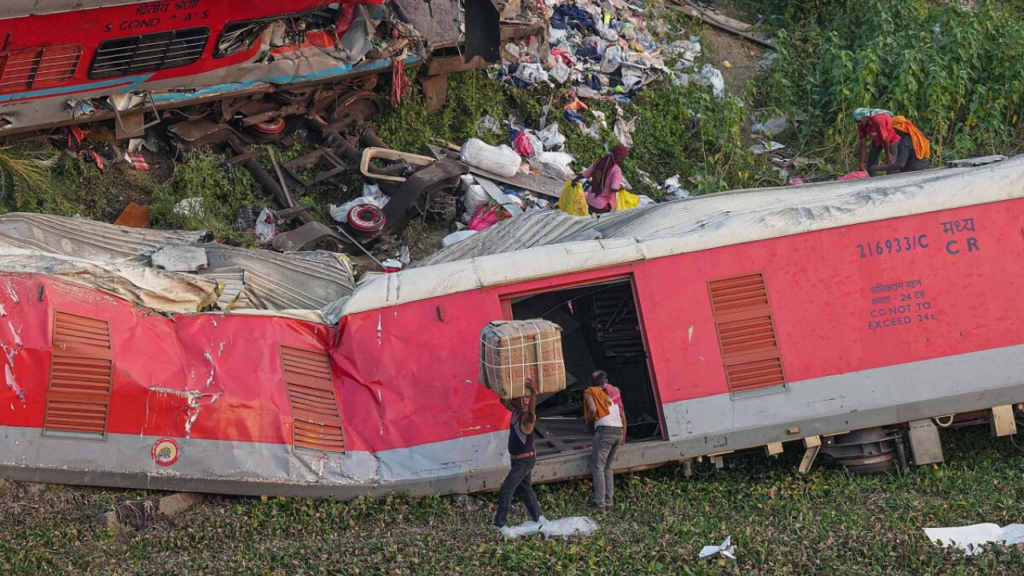Locals near the Bahanaga Bazar railway station in Odisha’s Balasore have complained about a coach’s terrible stench almost a week after a three-train collision killed 288 people.
Railway authorities responded that the odour was from rotting eggs, not “human bodies,” calming concerns about unattended victims.
According to PTI, residents around the train station were concerned that a coach left there smelled bad and may have contained dead. Locals alerted railway authorities, who searched with state government assistance.

‘Rotten eggs, Not Human Bodies”
The station smells like rotting eggs, not corpses. NDRF granted site permission twice.
South Eastern Railway CPRO Aditya Kumar Chaudhary told reporters that the package van on Yeshwantpur-Howrah Express had three tons of eggs.
Eggs were decaying and stinking. “Three tractors removed the eggs from the accident site,” Chaudhary added.

ODISHA Train Disaster
The Coromandel Express collided with a halted freight train on June 2, derailing most of its carriages. Some carriages from the Bengaluru-Howrah Express fell down. The Balasore triple-train tragedy killed 288 and wounded 1,200.
The crash site featured limbless victims and railway track bloodbaths. Mangled steel and bleeding, mutilated corpses lay entangled on the ground.
At Bhubaneswar AIIMS mortuary, 80 bodies remain unidentified and unclaimed.
Railway minister Ashwini Vaishnaw called interlocking system alterations “criminal.” The CBI is investigating criminal negligence in the Balasore railway disaster.
After a preliminary inquiry suggested interference with the electronic interlocking system that detects trains, the Railways recommended a CBI investigation. Officials suspected “sabotage” behind the disaster.
On June 3, the CBI took over the GRP Cuttack’s FIR under IPC sections 337, 338, 304A (causing death by negligence), and 34 (common intention) and Railways Act sections 153, 154, and 175 (endangering lives).
The FIR reported multiple deaths from collisions and electrocution with overhead low-tension lines.

